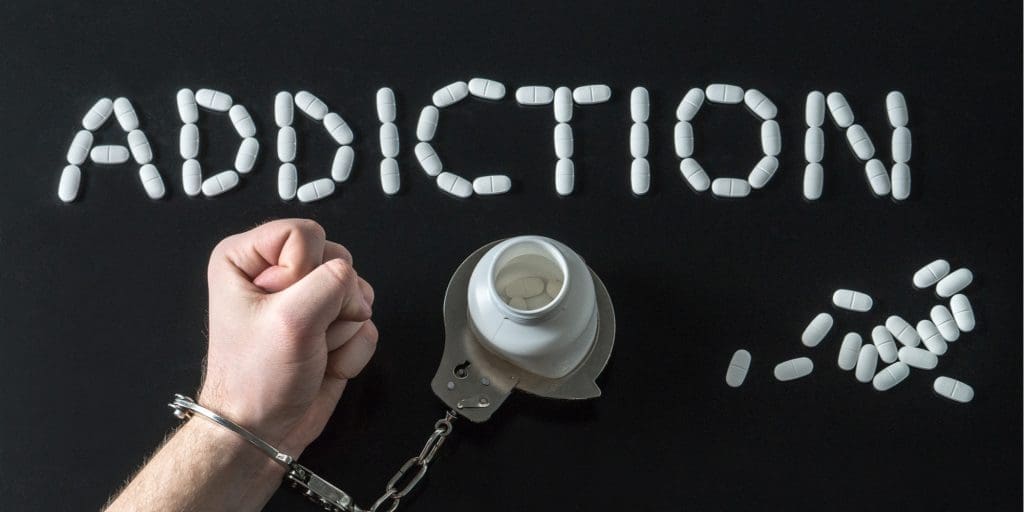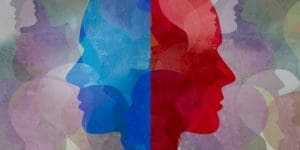A disease is something that can negatively impact your health physically, mentally, or emotionally. But this leaves a lot of people wondering, “Is addiction a disease?” Well, the answer to this might not be as simple as you’d think. Below, we will explore the signs of addiction, the connection between mental health and addiction, and work to find an answer to your question of “Is addiction a disease?”
Contents
Is Addiction a Disease?

There is a lot of debate as to whether or not addiction is a disease. Some people believe that addiction is a choice that people make each time they pick up a drink or use drugs, while others take note of genetic and environmental factors that cause the development of substance use disorders. This is why so many people are stuck debating, “Is addiction a disease?”
One thing that can help us to understand if addiction is a disease is to look at its signs and symptoms. It is important to note that every experience with addiction is unique and the symptoms can vary based on the substance as well as the presence of any co-occurring disorders. That being said, here are a few of the common symptoms of addiction:
- Constantly thinking about using alcohol or drugs
- Being unable to control how much you take or drink
- Having poor decision-making skills or being unable to think clearly
- Frequently using drugs or alcohol to the point of blacking out
- Turning to drugs or alcohol to “cope with” emotional distress
- Hiding how much or how often you are using the substance
- Developing worsening mental health symptoms
Even though these symptoms are different, they have something in common: the person experiencing the symptoms cannot control them. For instance, you might choose to have a drink, but you do not choose to become addicted to alcohol. In fact, many people are prone to developing addiction without even knowing it, and mental health can play a big role in that process.
Are Mental Health and Addiction Connected?
There are certain risk factors that might contribute to the likelihood of you developing a substance use disorder. If addiction runs in your family, for example, your chances of experiencing addiction increase. Furthermore, people who have gone through trauma are also more likely to become addicted to drugs or alcohol.
There is a direct connection between mental health conditions and addiction. Mental illnesses can also be passed down through families and can be brought on by environmental exposure, trauma, and not receiving the right kind of treatment soon enough. Just a few examples of mental health disorders include:
- Depression
- Anxiety
- Phobias
- Bipolar Disorder
- Obsessive-Compulsive Disorder
- Schizophrenia
- Suicidal Ideation
As one of the main symptoms of addiction listed above shows us, turning to drugs or alcohol in times of distress is a large red flag. Unfortunately, many people who have mental health disorders often go without a diagnosis and without treatment. This often leads to substance use because drugs and alcohol might temporarily numb the pain.
This also complicates the question of “Is addiction a choice?” For example, if someone sincerely believes that their only options are mental illness symptoms or abusing drugs, then that’s not a choice in the way that most people mean it. In this way, the “choice” to drink or use drugs is a complicated issue, particularly when mental health issues are present.
However, using drugs and alcohol only worsen and prolong the symptoms of mental health disorders. This is why it is so important to find a treatment program that will allow you to heal from the current symptoms you are experiencing and give you the resources you need to maintain recovery from mental health and addiction struggles throughout the rest of your life.
What Can I Do to Treat Substance Use Disorders?

The best thing you can do to treat substance use disorders and any co-occurring mental health concerns would be to find a treatment facility that can help you accomplish your recovery goals. Anybody who has a disease knows that the right treatment can make all the difference. While treatment doesn’t completely “cure” a disease—like taking insulin doesn’t make diabetes entirely disappear, for example—it can greatly help you to manage the symptoms and live a happy, functional life once again.
At Port St. Lucie Hospital, we are proud to offer mental health recovery through a variety of options. Not only do we provide mental health treatment for adults of all ages, but we also provide crisis care services to ensure that you are safe as you begin your recovery journey.
Additionally, our dual diagnosis program is specifically made to help people who are struggling with both mental health and substance use disorders. During the dual diagnosis process, you will have access to:
- Individualized counseling
- Group therapy
- Family sessions
- Medication management
- Mental health education
- 12-step program
- Relapse prevention strategies
Here, we continuously work to approach the question “is addiction a disease?” with evidence-based treatment options because we know that, regardless of the label, addiction can be a significant disruption to your life, your goals, and your emotional wellbeing. But there is hope through treatment that you can manage addiction and all of the challenges that come with it.
Ready to Reach Out?
If you have more questions about addiction and/or mental health disorders, our admissions specialists are here to help. Give us a call at (772) 335-0400 or complete a confidential contact form to start your journey toward recovery today.
A co-occurring disorder is a condition that exists secondarily to another major health issue. If we use this co-occurring disorders definition to look at mental illness and substance abuse, we can see that turning to drugs or alcohol, which then results in addiction, often happens simultaneously when a patient also has mental health concerns. Since one issue influences and worsens the other, we would call these co-occurring disorders. Co-occurring disorders must be treated together through a specialized program to ensure full recovery. As with any disease, drug addiction is classified as such because it is a condition that can cause serious and numerous health complications. Additionally, drug addiction is considered a disease because it cannot simply go away on its own—instead, it needs to be treated by experts in the field. Yes. According to the most recent edition of the Diagnostic and Statistical Manual of Mental Disorders (DSM-5), alcoholism, or alcohol use disorder (AUD), is a diagnosable mental illness that occurs in people who experience at least two of the 11 total criteria for this disorder. In fact, alcohol and mental illness have always been connected. Alcohol use can lead to mental health symptoms, and experiencing mental health distress without treatment can lead people to use alcohol as a way to “cope.”


























